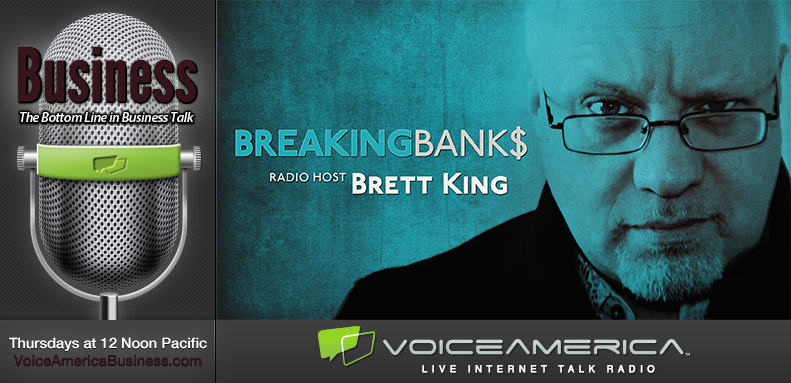Automation and robots are replacing real human interaction and Millennials donât care. At least thatâs what Brett King, best-selling futurist and creator of Moven, a mobile banking app says.
According to King, any bank or institution that requires a signature at all is in trouble with the younger generation. âAll of the basic services [young people] use today simply don’t require a signature for opening an account – Facebook, Google, iTunes, Snapchat, Instagram, Mobile Phone Accounts, etc.â he writes.
Behavior around banking is changing, King tells Yahoo Finance. The way we pay for things and the way we interact with those around us and our money are changing because of a modality shift brought on by the smartphone. He believes that the physical bank branch might soon be gone.
Still, Yahoo Finance editor-in-chief Aaron Task points out, people want to go see and touch their bank and money to know its real. âThere is a psychology to this,â says King. People do chose banks based on how close a branch is to their office or home. âThe only problem is when you ask people [why they chose a bank] and you see what theyâre actually doing, you might find two different things,â he says. People just arenât visiting bank branches anymore.
âItâs very rare for us to need to visit a bank branch. We can deposit our checks on our phones. We can send money electronically instantly,â he says, and while âthere is a psychology that if something goes wrong people want to go and speak to someone to get their money,â itâs a hangover from the depression days when people were less trusting of large, faceless institutions.
For Millennials, itâs just about utility, according to King. âItâs about how well it works. Does it work for my friends and in the social circles that I frequent? Can I get paid? And can I use it online and in a store?â
Human service used to be a differentiator because it was better, says King, but weâre now realizing that with technologies like IBMâs Watson that a human experience isnât always betterâeven in banking.
Customers on average are now visiting banks 85% less than they did in 1995, but for every Starbucks in the U.S., there are nine bank branches, and they cost billions to maintain. Big banks like Lloyds and Citibank are responding by announcing the reduction of branches. Britain’s Standard Chartered announced plans to close 100 branches on Tuesday.
âThis doesnât mean that branches will disappear,â warns King, âbut our reliance on them in terms of the relationship and the way we interact with the bank is definitely going to change and minimize.â
See the original article posting at Yahoo FinanceÂ
Learn more about Brett King’s radio show Breaking Banks which is about the massive upheaval facing the banking industry today as a result of loss of trust, rapid consumer behavior shift, massive technological change and increasing government scrutiny.
In 1472 Banco Monte dei Paschi di Siena opened its first branch. Since then “the bank” has been at the center of the way individuals in the community did banking â whether saving money, moving money around or requesting credit. Breaking Banks is a show exploring how banking is rapidly being disrupted and how context and digital are becoming the new drivers of banking experiences.
Will banking start to disappear from a traditional storefront? Is the end-game of technology like mobile and social media just making banking part of everyday experiences, whether that is buying a home, buying a car, traveling, shopping or funding our children’s education? The possibility that banking is no longer a place you go to, but just something that you do has become very real. Tune in for episodes on Demand.








